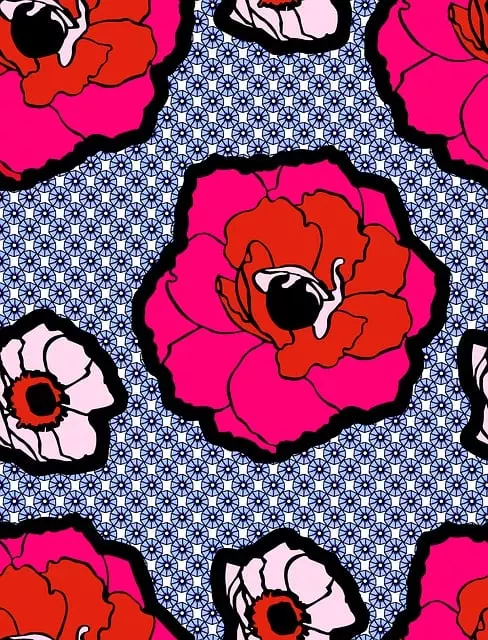Kratom, derived from Mitragyna speciosa, is a natural herb used for easing muscle soreness and potentially promoting hair growth, offering an alternative to remedies linked to hair loss. Its active compounds mitragynine and 7-hydroxymitragynine interact with opioid receptors to reduce pain and inflammation. While initial studies are positive, more research is needed on its long-term effects. To safely use kratom for muscle soreness, start with low doses and maintain a healthy diet. If significant hair thinning persists, consult a healthcare provider for personalized advice to support both muscle comfort and potential hair regrowth.
Muscle soreness, a common post-workout irritant, can be alleviated with natural remedies. Kratom, a herb gaining attention for its diverse benefits, shows promise in reducing muscle discomfort. This article delves into the science behind kratom and its potential to not only ease muscle soreness but also prevent hair loss—a common side effect of intense exercise. By exploring kratom’s active compounds and practical application, we uncover how this ancient plant can promote post-workout recovery and potentially stimulate hair regrowth.
- Understanding Muscle Soreness and Kratom's Potential Role
- Exploring Kratom's Active Compounds and Their Mechanisms of Action
- Practical Considerations for Using Kratom to Relieve Muscle Soreness and Prevent Hair Loss
Understanding Muscle Soreness and Kratom's Potential Role
Muscle soreness, often described as a dull ache or stiffness in the muscles, is a common issue faced by athletes and fitness enthusiasts after intense workouts or strenuous activities. This discomfort can significantly impact one’s daily life and overall well-being. While rest and proper hydration are essential for recovery, many seek additional natural remedies to alleviate muscle soreness effectively.
Kratom, derived from the tropical plant Mitragyna speciosa, has gained attention for its potential therapeutic effects on various health conditions. Its active compounds, including mitragynine and 7-hydroxymitragynine, have shown promising results in relieving pain and inflammation. Unlike traditional painkillers that merely mask symptoms, kratom interacts with the body’s opioid receptors, offering a more comprehensive approach to managing muscle soreness. Furthermore, while some remedies may lead to hair loss, studies suggest that kratom use is generally safe and does not induce significant hair thinning or loss, providing an added benefit for those seeking relief without potential side effects.
Exploring Kratom's Active Compounds and Their Mechanisms of Action
Kratom, a natural herb from Southeast Asia, has gained attention for its potential benefits in alleviating muscle soreness and promoting recovery. Its active compounds, known as mitragynine and 7-hydroxymitragynine, play a crucial role in its analgesic and anti-inflammatory effects. These compounds interact with opioid receptors in the body, which helps reduce pain perception and inflammation, providing relief for sore muscles after intense physical activity or workouts.
Interestingly, research also suggests that kratom may have positive effects on hair growth and preventing hair loss. Mitragynine has been found to stimulate hair follicle growth and enhance the production of keratin, a protein essential for healthy hair. This mechanism could be particularly beneficial for individuals experiencing hair thinning or balding due to stress or other medical conditions. However, it’s important to note that while studies show promising results, more research is needed to fully understand the long-term effects of kratom on both muscle soreness and hair health, especially regarding its potential interactions with other substances like mitragynine and hair growth supplements.
Practical Considerations for Using Kratom to Relieve Muscle Soreness and Prevent Hair Loss
Kratom, a natural herb known for its pain-relieving properties, has gained popularity as a potential solution for muscle soreness and related discomfort. When considering using kratom to alleviate muscle aches, it’s essential to approach it with practical considerations in mind. One significant concern is its impact on hair health. While kratom is generally well-tolerated, there have been anecdotal reports of users experiencing hair loss. However, it’s important to note that these claims are not universally confirmed, and the evidence suggests that kratom may not be a primary cause of permanent hair loss.
Practical steps can help ensure a positive experience with kratom for muscle soreness relief. Users should start with low doses, gradually increasing as needed, to find their optimal threshold. Additionally, maintaining a balanced diet rich in proteins and essential nutrients can support overall health and potentially minimize any adverse effects. If hair loss persists or concerns arise, consulting a healthcare professional is advisable. They can provide guidance tailored to individual needs, ensuring the safe and effective use of kratom for muscle soreness relief while addressing potential side effects like hair thinning or loss, with a focus on promoting healthy regrowth.
Kratom has shown potential as a natural remedy for muscle soreness relief, with its active compounds offering anti-inflammatory and analgesic effects. By understanding how kratom interacts with our body’s systems, we can effectively incorporate it into our wellness routines to ease muscle discomfort and even potentially prevent hair loss associated with intense exercise. While further research is needed, the practical considerations discussed here provide a roadmap for safely exploring kratom as a complementary solution. Remember, consulting with healthcare professionals before adding any new supplement is crucial for ensuring its suitability and efficacy.





